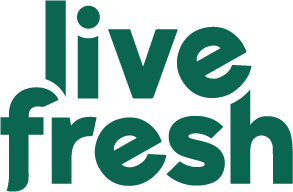In den letzten Jahren hatTofustark an Beliebtheit gewonnen und findet immer mehr seinen Platz in einerausgewogenen und vielfältigen Ernährung. Häufig wird Tofu mit veganer oder vegetarischer Küche in Verbindung gebracht, eignet sich jedoch für alle diejenigen, die sich für einengesunden Lebensstilinteressieren. In diesem Artikel werfen wir einen genaueren Blick auf Tofu, seine Herstellung, seine Vorteile und die zahlreichen Möglichkeiten, ihn in köstliche Gerichte zu verwandeln.
Highlights
- Tofu wird aus Sojabohnen hergestellt und ist eine hervorragende pflanzliche Proteinquelle.
- Es ist fettarm, cholesterinfrei und reich an Kalzium, Eisen sowie Magnesium.
- Tofu passt gut in eine vegane oder vegetarische Ernährung und ist vielseitig einsetzbar.
- Es gibt verschiedene Tofu-Arten, darunter Naturtofu, Seidentofu und Räuchertofu, die in vielen Rezepten verwendet werden können.
Manufacture
The production of tofu is a fascinating process that turns simple ingredients such as soybeans and water into a versatile product with different textures and flavors.
- SoakingThe first step in making tofu is to clean the soybeans thoroughly and then soak them for several hours or overnight. This allows the beans to absorb liquid and swell, making them easier to process.
- Grinding and cookingAfter the beans have been soaked, they are ground to produce soy milk. To do this, the soaked beans are mixed with drinking water and pureed into a fine paste. The paste is then cooked.
- Coagulation of the soy milkThe boiled soy milk is poured into a pot and coagulants are added. This causes the soy milk to separate into solid components (tofu) and liquid (whey solution). Careful stirring distributes the coagulant evenly throughout the soy milk.
- Pressing and moldingAfter coagulation has taken place, the resulting tofu is carefully removed from the pot using a sieve. It is then placed in a mold where it is pressed to remove any further liquid and achieve the desired consistency.
- Cooling and packagingAfter pressing, the tofu is immersed in cold water to cool and firm it up. The tofu is then packaged and refrigerated to preserve its freshness. The tofu can then be cut, seasoned and used in various dishes.
As you can see, the production of tofu is a fascinating process. Due to its versatility and high protein content, tofu is an excellent alternative to meat. It is rich in protein, iron, calcium and other important nutrients that help promote a healthy life - whether you are vegan or not.
Advantages of tofu
Tofu owes its popularity not only to its high protein content, but also to its numerous health benefits. Here, in this article, you will find out why the soy block can be a valuable addition to a healthy lifestyle.
#1 Rich in vegetable protein
Tofu is an excellent source of protein, especially for people who follow a vegan or vegetarian diet - the soy block is ideal as a meat substitute. It contains nine essential amino acids that the body needs to build and repair proteins.
On our blog you will find many interesting articles on the topics of health and nutrition. Among others, how many proteins you should consume daily and which vegan protein sources are available. You'll also find lots of delicious high protein recipes - whether you're looking for recipes for breakfastas a main meal or just snacks, you'll find everything you need on our recipes blog everyone will find what they are looking for! If you're in a hurry, you can also easily make our delicious low carb and high protein porridge or our Fitness Bowls prepare! In less than 10 minutes you have prepared a healthy and nutritious meal that will keep you fit and full of energy. To increase your protein intake simply and easily, we recommend using a protein shake - Quick to prepare and super tasty, you'll have 29g of protein per portion in no time at all!
#2 Cholesterol-free and low in fat
Unlike animal protein sources, tofu is cholesterol-free and low in saturated fat. So eating tofu can help lower blood cholesterol levels and reduce the risk of heart disease.
#3 Important nutrients
Tofu contains a number of essential nutrients that are important for optimal health. These include calcium, iron, magnesium, potassium and B vitamins such as folic acid. These nutrients play a crucial role in bone health, blood formation, muscle and nerve function and energy metabolism.
If you want to support your body with important nutrients, our freshly pressed juices and shots. Our cold-pressed ginger shots always cover 100% of the daily requirement of the vitamin or micronutrient they contain, such as magnesium, iron or vitamin C.
#4 Supports weight control
Tofu can be beneficial for weight control as it is low in fat, low in calories and high in protein. This helps you feel fuller for longer and reduces cravings. By eating tofu as part of a balanced diet, it can help to achieve and maintain a healthy body weight - you can find tips & tricks for losing weight on our blog.
If you don't have the time or desire to constantly cook healthy meals, shop for food and look for recipes, then you should definitely take a look at our food cleanse take a look at our From the breakfastfrom snacks to dinner, you're covered with low carb and high protein meals. During The cleanse you will be supported by us and receive useful tips & tricks as well as online training sessions.
#5 Versatile and delicious
Tofu is extremely versatile and can be used in a variety of dishes. It easily absorbs flavors and can be used in stir-fries, soups, salads, sandwiches, wraps and even desserts.
Tofu is a valuable plant-based source of protein with a range of health benefits. It is high in protein, low in fat and contains important nutrients. By eating tofu regularly as part of a balanced diet, you can boost your health, reduce the risk of heart disease and enjoy a versatile range of delicious dishes.
Types of tofu
Tofu is used in many cuisines around the world. However, there is not just one type of soy block - in fact, there are many varieties of tofu that differ in texture, flavor and use. Here are the three most important types of tofu:
#1 Natural tofu
The most commonly used type of tofu is natural tofu. It has a firm, compact texture and can be marinated, fried, grilled or baked. Due to its consistency, natural tofu retains its shape when cooked and can be cut into cubes or strips. It is a good substitute for meat in dishes such as scrambled eggs, tofu skewers or burgers.
#2 Silken tofu
Silken tofu has a soft, smooth and creamy consistency. It is ideal for preparing desserts, sauces, puddings and creamy soups. Silken tofu can also be used as a substitute for eggs or milk in vegan baking recipes to achieve an airy and moist texture. Thanks to its neutral flavor, silken tofu absorbs flavors well and adds a velvety texture to dishes.
#3 Smoked tofu
Smoked tofu has a smoky aroma and flavor. Smoked tofu is ideal for preparing savory dishes such as stews, stir-fries, salads or sandwiches. Due to its intense flavor, smoked tofu can also be used as a flavor enhancer in vegetarian or vegan dishes.
Recipes with tofu
Tofu is an extremely versatile food that plays an important role in plant-based cuisine. With its neutral taste and ability to absorb flavors, tofu offers endless possibilities for preparing delicious and healthy dishes. Whether you're vegan, vegetarian or simply interested in a varied and healthy diet, tofu can be a wonderful addition to your menu. Here are our favorite recipes when it comes to tofu:
Frequently asked questions about "What is tofu?":
Tofu is often seen as a healthy and environmentally friendly alternative to animal products. However, there are also those who say that tofu is harmful to the environment.
The cultivation of soy plays a decisive role in assessing the environmental impact of tofu. Soy cultivation is linked to the problem of deforestation. In the past, large areas of rainforest were cleared to make room for soy cultivation. This led to significant negative impacts on biodiversity and climate change.
However, it should be noted that not all soy cultivation is destined for tofu production. A significant proportion is used as animal feed, especially for livestock farming.
Another important aspect is the consumption of resources. The production of tofu requires a certain amount of drinking water, energy and agricultural land. However, compared to animal products such as beef or cheese, the resource consumption of tofu is generally lower. The production of tofu therefore requires less water and causes fewer greenhouse gas emissions.
If we want to opt for a sustainable lifestyle, we should not only look at individual foods in isolation, but also rethink our eating habits as a whole. A balanced and diverse lifestyle based on plant-based foods and reducing the consumption of animal products can contribute to a more sustainable future.
What significance does tofu have in different cultures and traditions?
Tofu is a plant-based food made from soybeans. It has a long history and an important role in various cultures and traditions around the world.
In many Asian countries, tofu is a staple food and has a deeply rooted cultural significance. In China, the country of origin of tofu, it has been produced for over 2,000 years and is used in a variety of ways. There, tofu is prepared in soups, steamed dishes, fried dishes and even as sweet desserts. In Japan, Korea, Vietnam, Thailand and other Asian countries, tofu also has a firm place in the kitchen and is part of many traditional recipes. And tofu has also become increasingly important in the western world in recent years. With increasing interest in plant-based diets, tofu has gained popularity as a meat substitute. It is used in numerous dishes such as salads, stir-fries, burger patties and desserts. Tofu stands for a healthy and sustainable lifestyle and is appreciated by many as an alternative to animal products.
Tofu also plays a role in religious and spiritual practices. In some Buddhist communities, tofu is seen as an important part of a vegetarian or vegan lifestyle as it supports compassionate action and respects animal life. Tofu is also used in some religious festivals and ceremonies as a symbol of purity and health.
Tofu has gained remarkable importance in various cultures and traditions around the world. From its origins in Asia to its worldwide spread, tofu has established itself as a versatile food used in both traditional and modern cuisines. Its importance ranges from cultural and religious aspects to innovative culinary applications. Tofu is a symbol of the diversity of global gastronomy and has made an important contribution to the promotion of healthy and sustainable nutrition.
Are there differences between conventional tofu and organic tofu?
When buying tofu, you often have the choice between conventional tofu and organic tofu. We will now look at the differences between these two options and the potential impact on the environment, health and sustainability.
- Conventional tofu: This is made using soybeans, which are often conventionally farmed. Conventional farming usually uses chemical fertilizers and pesticides to increase yields and control pests. These practices can lead to environmental impacts such as soil erosion, water pollution and loss of biodiversity. In addition, pesticide residues may be present in tofu, which can pose potential health risks.
- Organic tofu: This is made from soybeans grown according to organic farming standards. Organic farming uses natural methods to fertilize the soil, control pests and promote biodiversity. The use of chemical fertilizers and pesticides is severely restricted or prohibited. Organic tofu is also produced without the use of genetically modified organisms (GMOs), which is an important criterion for many consumers. Not using GMOs helps to preserve biodiversity and avoid potential health risks associated with GMOs.
The difference between conventional tofu and organic tofu lies in the cultivation and production methods and the potential impact on the environment, health and sustainability. Organic tofu is grown and produced according to organic standards, reduces the use of chemical substances and supports more sustainable agriculture. When choosing between conventional tofu and organic tofu, you can make conscious choices to support your own health and the environment.
Das könnte dich auch interessieren

Dr. Ulrike Fischer
Nutritionist
Developed on a scientific basis by Dr. Ulrike Fischer, who holds a doctorate in nutritional science.
In den letzten Jahren hatTofustark an Beliebtheit gewonnen und findet immer mehr seinen Platz in einerausgewogenen und vielfältigen Ernährung. Häufig wird Tofu mit veganer oder vegetarischer Küche in Verbindung gebracht, eignet sich jedoch für alle diejenigen, die sich für einengesunden Lebensstilinteressieren. In diesem Artikel werfen wir einen genaueren Blick auf Tofu, seine Herstellung, seine Vorteile und die zahlreichen Möglichkeiten, ihn in köstliche Gerichte zu verwandeln.
Highlights
- Tofu wird aus Sojabohnen hergestellt und ist eine hervorragende pflanzliche Proteinquelle.
- Es ist fettarm, cholesterinfrei und reich an Kalzium, Eisen sowie Magnesium.
- Tofu passt gut in eine vegane oder vegetarische Ernährung und ist vielseitig einsetzbar.
- Es gibt verschiedene Tofu-Arten, darunter Naturtofu, Seidentofu und Räuchertofu, die in vielen Rezepten verwendet werden können.
Inhalt








